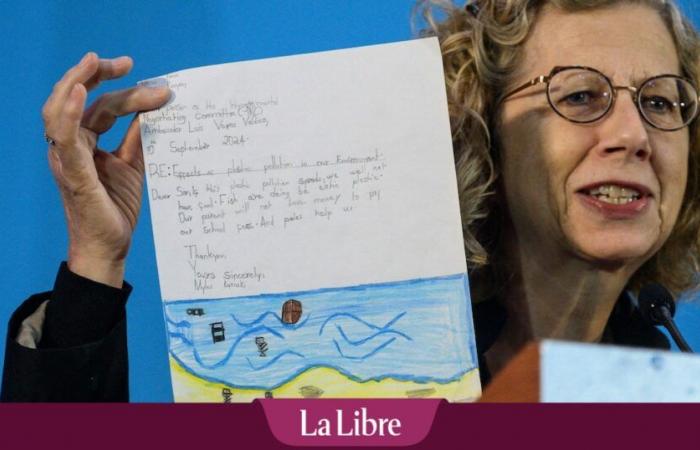Pollution right into the nooks and crannies of the human body
More than 90% of plastic is never recycled, and more than 20 million tonnes end up in the environment every year, often after just a few minutes of use. In 2019, the world produced around 460 million tonnes of plastic, a figure which has doubled since 2000. And this quantity is likely to double again by 2040. We already find microplastics in all the food we consume, in virtually every part of the human body including the brain and breast milk, and even in the clouds.
Should we fear microplastics present in Belgian waters?
In Busan, two camps are opposed, more particularly on the most sensitive subject of limiting this pollution at the source by reducing the production of this material.
First there is the “High Ambitions Coalition” (HAC) which brings together many African, Asian states and the European Union. These countries want a treaty covering the entire “life cycle” of plastics, from production to waste. The HAC is campaigning for binding targets to reduce production and waste, and to impose changes in the design of plastics to facilitate their reuse. Rwanda and Peru, for example, propose a “40×40” objective: 40% reduction in plastic production by 2040, based on 2025 levels. Various studies also support similar measures.
The oil states’ plan B
The opposing camp, mainly made up of large oil producers such as Russia, Iran and Saudi Arabia, is campaigning for a weak treaty which would only concern recycling and waste management, without calling into question production. The oil and gas industry indeed considers petrochemicals and plastics as its “plan B” while the demand for oil is decreasing in other sectors such as electricity and transport, according to some observers, who also highlight the habits obstruction of these countries. The position of the United States and China, which have so far not openly sided with either camp, will be closely watched. But the return of Donald Trump to the White House naturally raises questions about the degree of ambition of the American delegation. For its part, will Europe display a united front?
Antarctica in turn threatened by microplastics
Speculation is already rife as to the possible outcome of the discussions. Observers say reaching a treaty with mandatory production cuts is unlikely. A much more likely outcome would be the adoption of a “weak” treaty comprising only an aspiration or voluntary measures to reduce plastic production. Just as credible: no treaty signed but negotiations postponed or extended until 2025.
“After the failure of two consecutive summits on nature and climate, Busan must be a refuge from inaction on nature and climate,” implored the WWF. “This conference is much more than the drafting of an international treaty. It is humanity that is mobilizing in the face of an existential threat.”declared the Ecuadorian diplomat who chaired the debates, Luis Vayas Valdivieso, opening the session.






